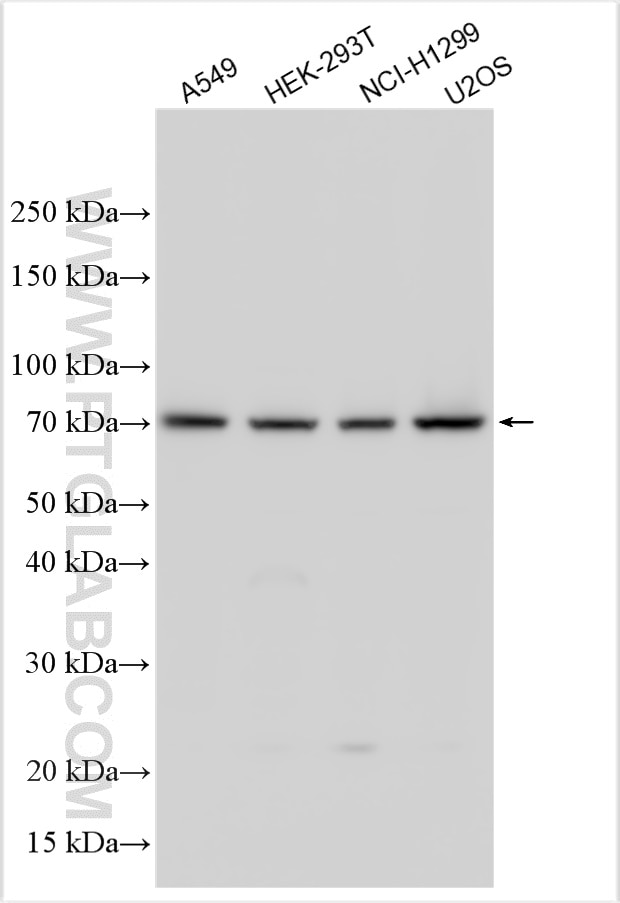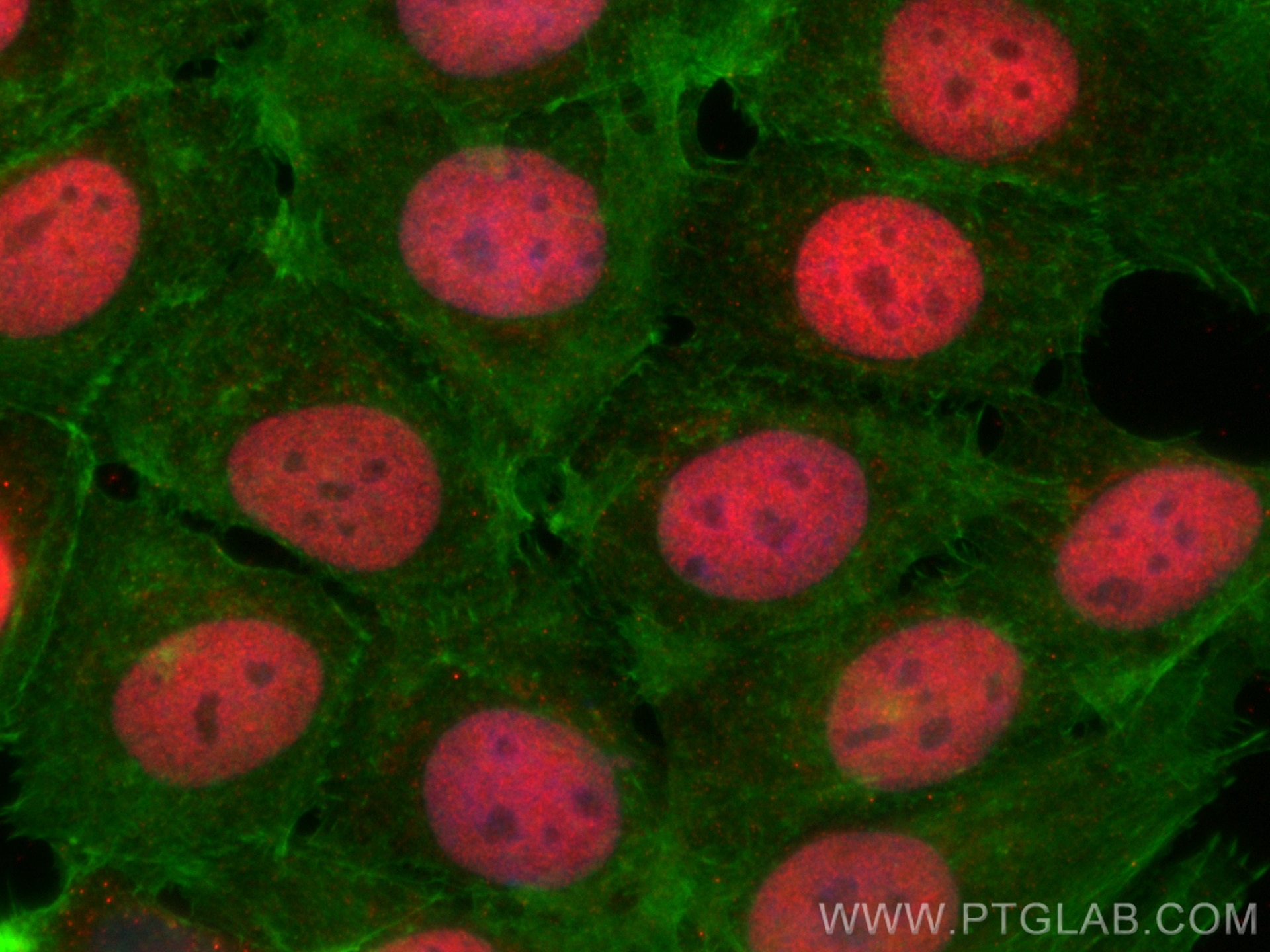Tested Applications
| Positive WB detected in | A549 cells, HEK-293T cells, NCI-H1299 cells, U2OS cells |
| Positive IF/ICC detected in | MCF-7 cells |
Recommended dilution
| Application | Dilution |
|---|---|
| Western Blot (WB) | WB : 1:500-1:2000 |
| Immunofluorescence (IF)/ICC | IF/ICC : 1:200-1:800 |
| It is recommended that this reagent should be titrated in each testing system to obtain optimal results. | |
| Sample-dependent, Check data in validation data gallery. | |
Published Applications
| KD/KO | See 1 publications below |
| WB | See 1 publications below |
Product Information
18700-1-AP targets ZBTB7A in WB, IF/ICC, ELISA applications and shows reactivity with human samples.
| Tested Reactivity | human |
| Cited Reactivity | human, mouse |
| Host / Isotype | Rabbit / IgG |
| Class | Polyclonal |
| Type | Antibody |
| Immunogen |
Peptide Predict reactive species |
| Full Name | zinc finger and BTB domain containing 7A |
| Calculated Molecular Weight | 61 kDa |
| Observed Molecular Weight | 61-70 kDa |
| GenBank Accession Number | BC113511 |
| Gene Symbol | ZBTB7A |
| Gene ID (NCBI) | 51341 |
| Conjugate | Unconjugated |
| Form | Liquid |
| Purification Method | Antigen affinity purification |
| UNIPROT ID | O95365 |
| Storage Buffer | PBS with 0.02% sodium azide and 50% glycerol, pH 7.3. |
| Storage Conditions | Store at -20°C. Stable for one year after shipment. Aliquoting is unnecessary for -20oC storage. 20ul sizes contain 0.1% BSA. |
Background Information
ZBTB7A, also named as LRF, FBI1, FBI-1, pokemon, ZBTB7, ZNF857A and DKFZp547O146, a member of the POK (POZ and Krüppel) family of transcription factors, plays a role in differentiation, oncogenesis, and adipogenesis (PMID: 35798238). ZBTB7A is involved in the instruction of early lymphoid progenitors to develop into B lineage by repressing T-cell instructive Notch signals. ZBTB7A is widely expressed in normal thymus and it is aberrantly overexpressed in human cancers (PMID: 28942243). ZBTB7A has 10 potential sumoylation sites located at lysine 61, 354, 371, 379, 383, 396, 486, 487, 536 and 539 (PMID: 20471975, 19471103). ZBTB7A has a predicted molecular weight of 61 kDa and the 75~80-kDa band could be the sumoylated form.
Protocols
| Product Specific Protocols | |
|---|---|
| IF protocol for ZBTB7A antibody 18700-1-AP | Download protocol |
| WB protocol for ZBTB7A antibody 18700-1-AP | Download protocol |
| Standard Protocols | |
|---|---|
| Click here to view our Standard Protocols |






